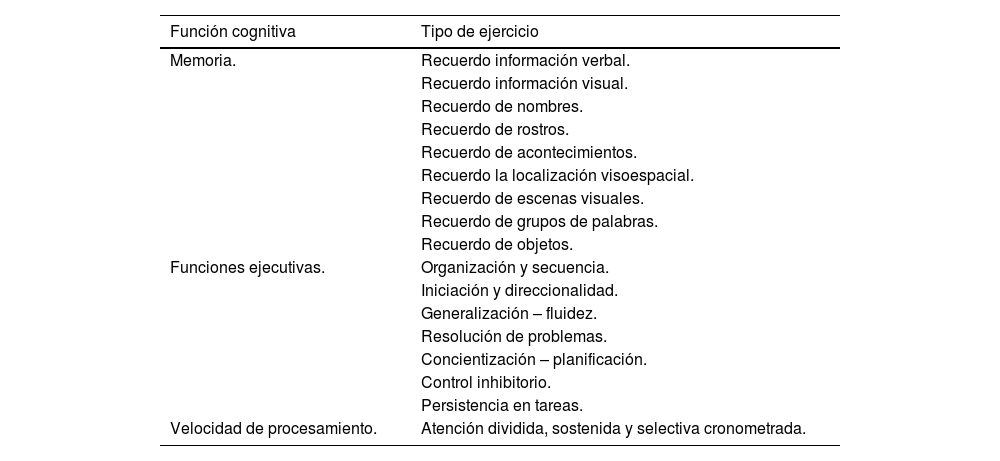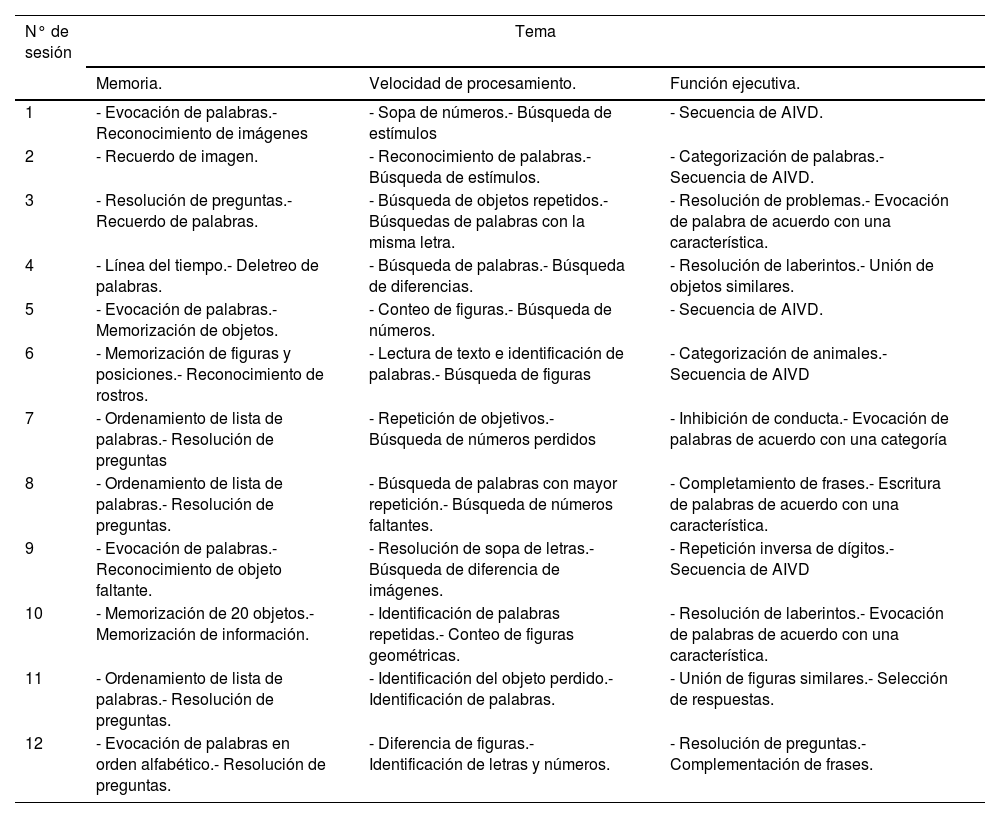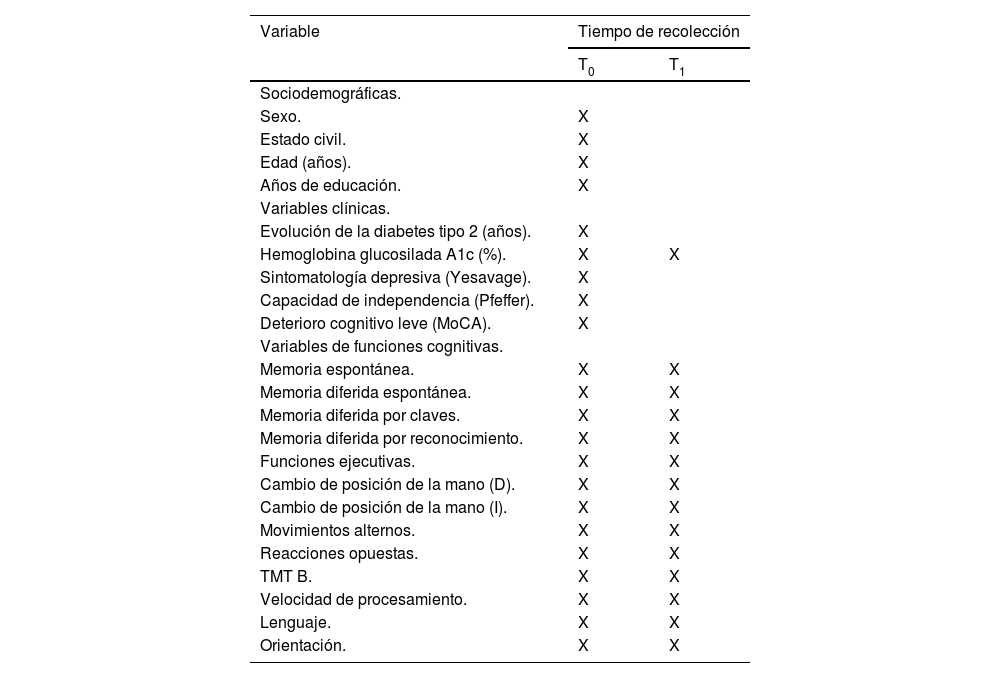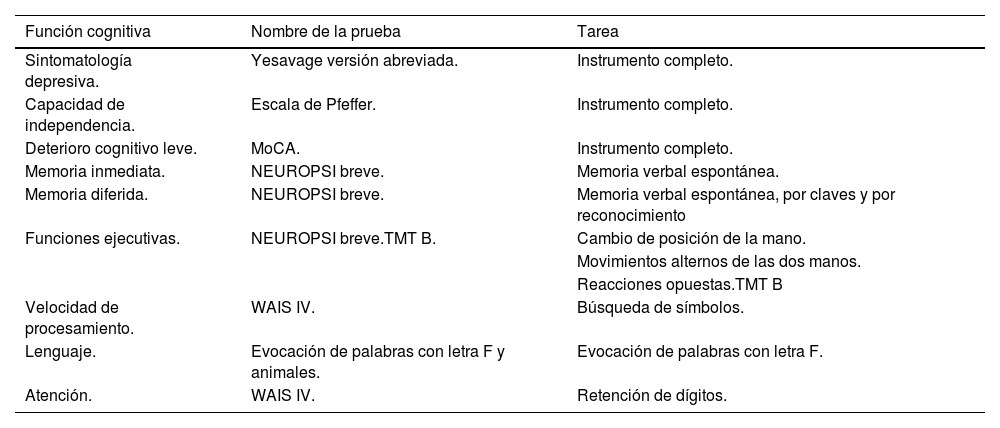Con el envejecimiento se presentan cambios en las estructuras del organismo que aumentan la susceptibilidad de desarrollar diabetes mellitus tipo 2 (DM2) y deterioro cognitivo leve (DCL). Actualmente se conoce la asociación que existe entre la DM2 y el DCL. A pesar de la evidencia científica que demuestra que la rehabilitación cognitiva mejora el rendimiento cognitivo de los adultos mayores con DCL, hasta el momento existen pocos estudios que evalúen la efectividad de la rehabilitación cognitiva en adultos mayores con DM2 y DCL.
Pacientes y métodosEstudio cuasiexperimental con pretest y postest. Las personas serán asignados al azar (1:1) al grupo intervención y grupo control. El grupo intervención será incluido a un programa de rehabilitación cognitiva con enfoque restaurativo de 12 semanas. El grupo control no recibirá intervención alguna.
Resultados esperadosImplementar un programa de rehabilitación cognitiva, que mejore la memoria, velocidad de procesamiento y funciones ejecutivas, tal como el nivel del control glucémico de los participantes asignados al grupo de intervención. Que nos permita adquirir las bases necesarias para realizar una prueba piloto.
ConclusionesEste es el primer estudio cuasiexperimental en México en desarrollar un programa de rehabilitación cognitiva con enfoque restaurativo para adultos mayores con DM2 y DCL. Realizar este programa permitirá a las personas mayores tener una alternativa de tratamiento que mejore su autonomía en el control de DM2, y contribuirá con importantes aportaciones metodológicas a las líneas de investigación de la DM2 y DCL.
During the aging process, different changes in the body structures appear, increasing the susceptibility to develop type 2 diabetes (T2DM) and mild cognitive impairment (MCI). The association between T2DM and MCI has been described in different studies. Despite the scientific evidence that shows that cognitive rehabilitation improves the cognitive performance of older adults with MCI, currently, there are few studies evaluating the effectiveness of cognitive rehabilitation in older adults with T2DM and MCI.
Participants and methodsPretest and posttest quasi-experimental design. Participants will be randomly assigned (1:1) to the intervention and control groups. The intervention group will undergo a 12-week cognitive rehabilitation program with a restorative approach. The control group will not receive any intervention. All participants will be followed up three months after randomization.
Expected resultsTo develop a cognitive rehabilitation program that improves memory, processing speed and executive functions, as well as the level of glycemic control of the participants assigned to the intervention group. These results will allow us to acquire the necessary data to carry out a pilot test.
ConclusionsThis is the first quasi-experimental study in Mexico in which a cognitive rehabilitation program with a restorative approach is developed for older adults with T2DM and MCI. By carrying out this program, older adults will have an alternative treatment that improves their autonomy, specifically in the control of T2DM. In addition, this study makes important methodological contributions in the lines of research of T2DM and MCI.












